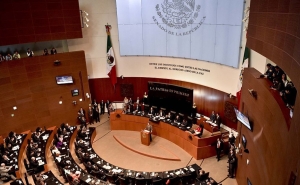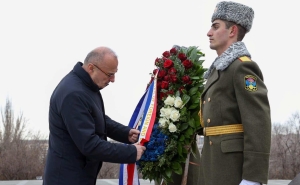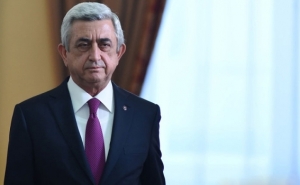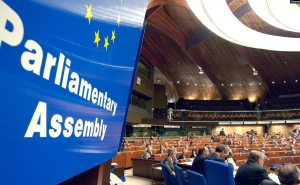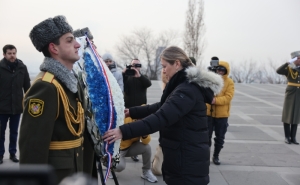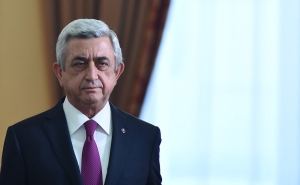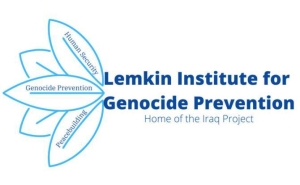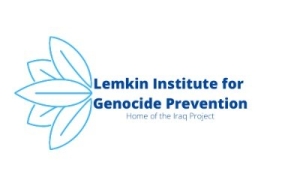RA President: We will Continue Our Struggle for the Prevention of Genocides

On July 8, at the Great Hall of the American University of Armenia, the RA President Serzh Sargsyan took part in the solemn opening ceremony of the 12th Meeting of the International Association of Genocide Scholars (IAGC) titled "Comparative Analysis of 20th Century Genocides." The meeting was attended by by IAGC President Daniel Feierstein and more than a hundred leading experts in genocide and adjacent fields. The Armenian president delivered a speech, which as the press service of the RA President writes, reads as follows:
"Honorable Mr. Feierstein,
Dear participants of the 12th Meeting of the International Association of Genocide Scholars,
It is an honor for me to greet you in Armenia and signal the start of this representative meeting. I am proud that being people who survived genocide, the most terrific crime against humanity, we have managed to revive and build statehood, and today we have the opportunity to be at the forefront of the fight against the crime of genocide.
It often seems that along with the development of international law and the progress in political thought, humanity should have already overcome the calamity caused by the crime of genocide. So many times have been talked about the components of this crime against humanity, and so many efforts have been made to characterize, prevent, punish and condemn this crime, that it would seem that the "Never Again" slogan will reach its full realization.
Unfortunately, today we continue to witness promotion of genocidal actions, xenophobic propaganda and fascist ideology. We can observe mass killings, manifestations of violence, massacres, discrimination grounded on religious, national and linguistic distinctions, attempts to annihilate, in whole or in part, separate groups, and targeting of cultural heritage and spiritual life.
It points out the fact that the international fight against the crime of genocide must gather momentum, acquire a new meaning and use all possible platforms.
Some people often use the wording "tragedy" when referring to genocide. But it is necessary that we always use the only correct characterization of the term – "crime." Tragedy can often be the result of a technological disaster, can be the result of a natural disaster and even the result of a contingency. All this is in stark contrast to genocide, a carefully calculated, planned and prepared crime, which has a clear target, a defined set of tools and an ideology based on xenophobia.
And taking into account the multilevel nature of that crime, it is very important that the process of its characterization, prevention, cessation, condemnation and imposing an appropriate punishment is grounded on a comprehensive approach which builds on a multidisciplinary scientific foundation. We need historians, political scientists, ethnographers, culturologists, international law experts, psychologists and many other specialists to carry out an effective struggle against the crime of genocide, as well as to outline and take steps aimed at overcoming the effects of genocides. This is why this platform of the International Association of Genocide Scholars is important. You have a professional approach to that hellish phenomenon which faces humanity.
Unfortunately, throughout history, various interests have often overshadowed the imperative to prevent genocides, creating unpunished precedents in human chronology and thus stimulating further manifestations of such behavior. It is no secret that science, too, has failed to avoid attempts to hide crimes, present victims as criminals and criminals as victims, or maybe it is more correct to say "anti-science."
Hence, I have another reason to value the mission of this meeting and your many years’ efforts aimed at restoring historical justice in science. We highly appreciate the fact that your association recognized and condemned the Armenian Genocide in 2007.
Ladies and gentlemen,
Of pivotal importance is, of course, the broad involvement of social and political circles in preventing crimes against humanity, including genocides. Political figures, cultural, ecclesiastical and academic circles, civil society and the free media should direct concerted efforts at that struggle.
As part of the events to mark the Armenian Genocide Centennial, Yerevan hosted the first global forum "Against the Crime of Genocide" in April this year. The forum was joined by around 600 delegates, journalists, ecclesiastical leaders and scholars. It was not directed towards any state or people; it was directed at the crime of genocide.
It was exactly the forum participants’ suggestion, and Mr. Feierstein approved it, that Armenia should assume a leadership role in that issue and make that forum a regular event. After having necessary discussions, we have accepted that offer and plan to hold the forum once in two years, staring from 2016.
We hold that it will be better that the global forum succeeds the years of your association’s conferences, thus providing your organization with a new platform to share your experience and knowledge with broader circles. I officially suggest that the International Association of Genocide Scholars become the co-founder, organizer and permanent participant of the forum "Against the Crime of Genocide."
Dear partakers,
Hundred years have passed since the Armenian Genocide, but nothing has been forgotten. We have not forgotten the names of those intellectuals, scholars and humanists in general, who used their minds and pens to shed light on the crime committed 100 years ago, thus not allowing its disguise at the time. And it is no accident that the pillar of gratitude is one of those four pillars upon which the Armenian Genocide Centennial rests: we are obliged to all those scholars and public and political figures, who, ignoring all difficulties, spoke out and continue to speak out about the Armenian Genocide.
It is crucial to us that the fact of the Armenian Genocide was mentioned during the mass performed by Pope Francis, in the addresses of Russia’s, France’s, Serbia’s and Cyprus’s presidents who had arrived in Yerevan to take part in the commemorative events, during the remembrance ceremony at Washington National Cathedral, in the historic address by German President Joachim Gauck where he clearly spoke about the German Empire’s complicity, in the documents adopted by Chile’s, Brazil’s, Australia’s, Luxembourg’s, the Netherlands’, Russia’s legislatures, by Greece and Cyprus in the resolutions criminalizing that crime, in the resolutions of authoritative international organizations, including the European Parliament, and most importantly, left footprints in the hearts of tens of millions of people who express their solidarity for the Armenian people’s just struggle.
It is in this same context that I view your decision to hold your meeting in Yerevan in this important remembrance year.
We are grateful to all of you for this unprecedented support and courage.
Dear guests,
We will continue our struggle for the prevention of genocides, for which will always need your support and advice. Our struggle is aimed at restoring our rights, and we are grateful to all those who support us, at least to those who do not hinder us. I wish the meeting a fruitful work, and I wish you pleasant days in Armenia.
Thank you."
Other materials on this subject
- Australia MP Joins Demand for Armenian Genocide Recognition A former Mayor of the Bega Valley Shire, McBain entered Federal Parliament in 2020 after winning a by-election. A lawyer by training, Kristy McBain becomes the newest member of the Joint Justice Initiative.
- Quebec National Assembly Unanimously Passes Resolution on 106th Anniversary of Armenian Genocide The resolution marks the 106th anniversary of the atrocities that took the lives of 1.5 million Armenian men, women and children.
- Armenian Churches’ Bells to Ring Friday Night in Memory of Genocide Victims The bells of all the temples of the Armenian Church will ring on Friday at 11pm, in memory of the holy martyrs of the Armenian Genocide.
- Los Angeles Declares April as Armenian History Month One of the motions recognizes April 24 as the Day of Remembrance in solemn recognition of the Armenian Genocide, and the second declares April as Armenian History Month.
- Wall Street Journal: Biden Intends to Recognize Armenian Genocide Biden is expected to describe as genocide the deportation, starvation, and massacres of Armenians at the hands of the Ottoman Turks beginning in 1915, the officials said.
-
 17:08
17:08The regular session of the Anti-corruption Policy Council takes place in Jermuk
-
 15:05
15:05The Prime Minister sends congratulatory messages to the supreme leader of Iran and the President of Iran
-
 11:11
11:11Armenia sends earthquake aid to Turkey
-
 10:43
10:43Commemoration of the Pontiff St. Sahak Partev
-
 09:16
09:16Some roads are closed and difficult to pass in Armenia
-
 19:55
19:55Phone conversation of the Foreign Minister of Armenia with the U.S. Assistant Secretary of State for European and Eurasian Affairs
-
 18:30
18:30Prime Minister Pashinyan and President Khachaturyan meet
-
 18:20
18:20Ararat Mirzoyan with Co-Chairman of the OSCE Minsk Group of France Brice Roquefeuil
-
 17:01
17:01Humans could land on Mars within 10 years, Musk predicts
-
 16:45
16:45France, US urge 'immediate' end to Nagorno Karabakh blockade
-
 16:01
16:01Blockaded Nagorno Karabakh launches fundraiser to support quake-hit Syria
-
 15:59
15:59Earthquake death toll in Turkey rises to 18,342
-
 15:43
15:43Ararat Mirzoyan Held a Telephone Conversation with Sergey Lavrov
-
 15:06
15:06French president rules out fighter jet supplies to Ukraine in near future
-
 14:47
14:475 Day Weather Forecast in Armenia
-
 14:44
14:44President Vahagn Khachaturyan wrote a note in the book of condolences opened in the Embassy of Syria in Armenia
-
 14:20
14:20Azerbaijan’s provocations impede establishment of peace and stability – Armenian FM tells Russian Co-Chair of OSCE MG
-
 12:57
12:57France representation to OSCE: Paris calls on Azerbaijan to restore freedom of movement through Lachin corridor
-
 11:40
11:40Command of Kosovo forces highly appreciated preparation of Armenian peacekeepers
-
 10:16
10:16The United States withdrew from sanctions against Syria for six months the provision of assistance after the earthquake
day
week
month
Humidity: %
Wind: km/h


